Strengthening and Intensifying International Partnerships
Freiburg, 21/02/2025
Delegations of University leaders and researchers led by Rector Prof. Dr. Kerstin Krieglstein visited two close partners of the University of Freiburg: Nagoya University in Japan and the University of Adelaide in Australia. The focus was on more intensive cooperation in research as well as strategic further development at the universities.
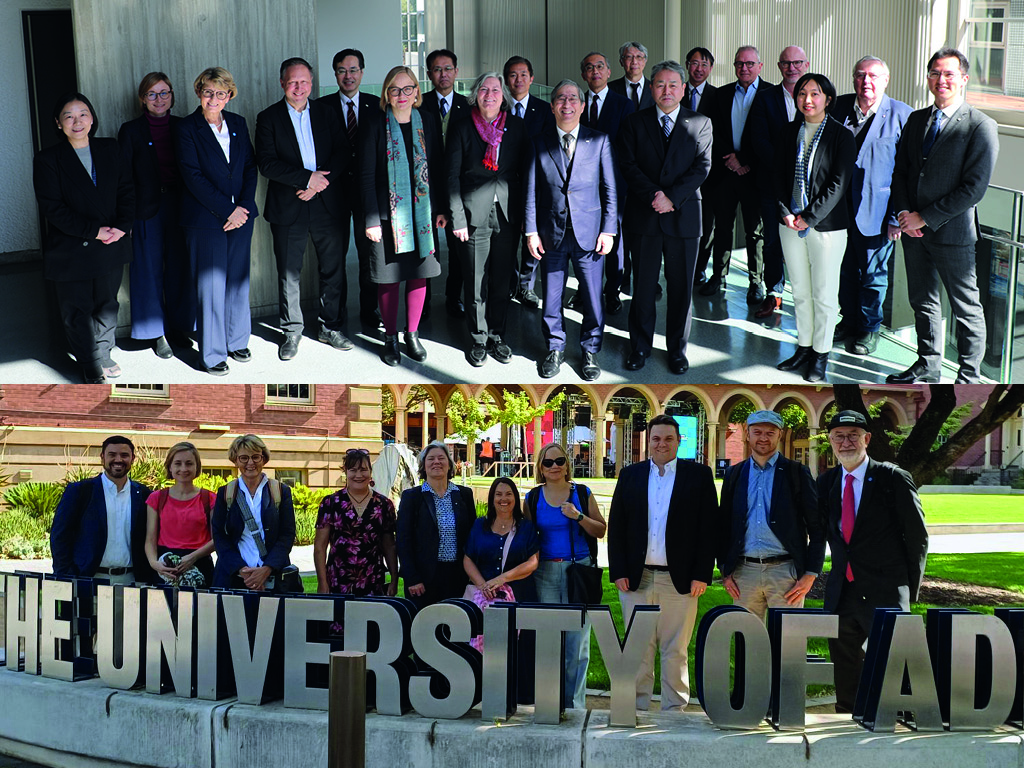
An international orientation has great strategic significance for the University of Freiburg, because internationality is central to competitiveness in research and teaching. An important element in this regard is international partnerships. The University of Freiburg maintains particularly close relations, so-called enhanced partnerships, with three universities. They promote research collaboration in various disciplines, increased exchange in studies and teaching, and strategic further development at the universities.
International cooperation in ‘enhanced partnerships’
Rector Prof. Dr. Kerstin Krieglstein and delegations of University leaders and researchers recently visited Nagoya University in Japan and the University of Adelaide in Australia, both of which are enhanced partners of the. ‘Strengthening the cooperation with our close partners from Nagoya and Adelaide is an important concern for me. The very constructive and positive talks on location are an outstanding basis for more intensive collaboration in various fields of research and for strategic further development, both at the University of Freiburg and at our partner universities’, says Krieglstein.
Exchange on strategic development with Nagoya University
Departmental relations with Nagoya University in the field of economics go back to the 1950s. Today they extend particularly to the fields of medicine, chemistry, physics, economics, and environmental sciences. The departmental ties are to be further intensified in the future. The members of the University leadership were therefore accompanied by Prof. Dr. Dirk Neumann from the Faculty of Economics and Behavioural Sciences and Prof. Dr. Bernd Rolauffs and Prof. Dr. Rainer Schmelzeisen from the Faculty of Medicine / Medical Center – University of Freiburg.
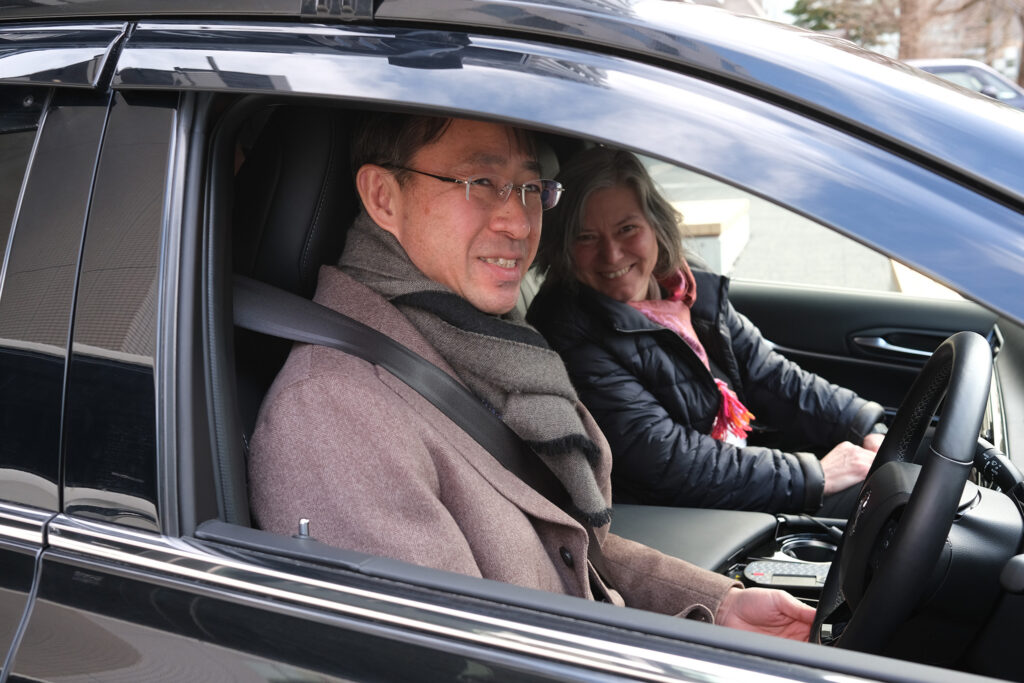
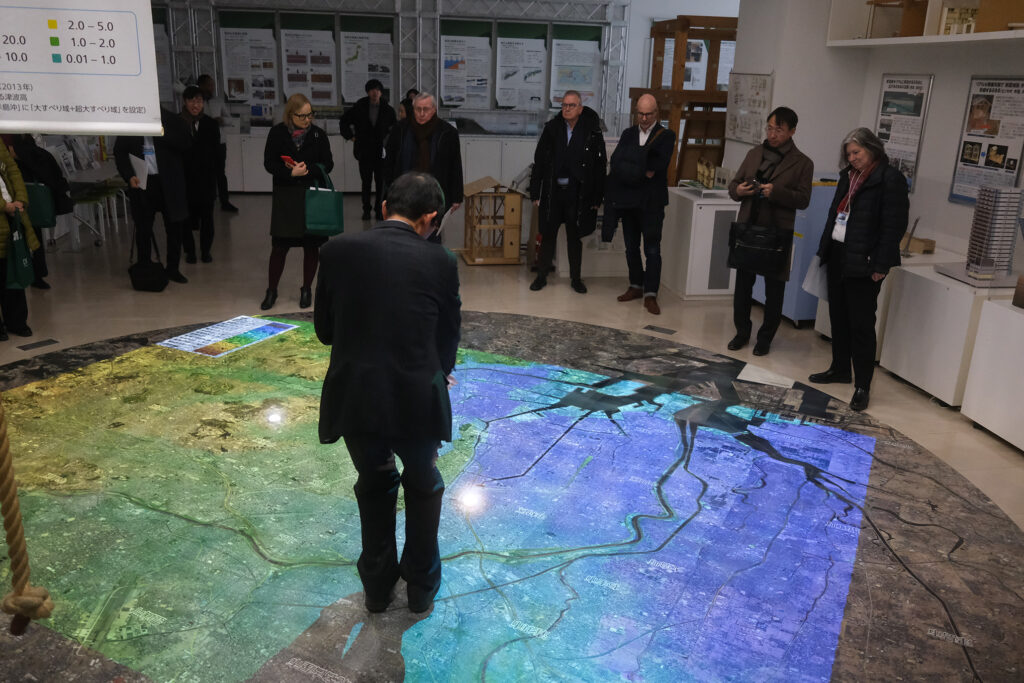
The partners were also able provide each other valuable impulses in an exchange on strategic development and the capacity for renewal at the universities. Among other things, the delegation visited Nagoya University’s Disaster Mitigation Center, which can simulate earthquakes and aims to sensitize the local population to the dangers of earthquakes and tsunamis.
Joint doctoral programme with the University of Adelaide
The visit to the University of Adelaide served, among other things, to strengthen and intensify research collaboration in the field of biomedicine, as well as the areas of sustainability, energy, and environment. An important element in this regard was the signing of an agreement on a joint doctoral programme, which is to apply initially to the fields of medicine and biology but can be gradually opened to other disciplines. Besides members of the University leadership, the delegation also included Prof. Dr. Frank Balle, Dean of the Faculty of Engineering, Prof. Dr. Hartmut Fünfgeld from the Faculty of Environment and Natural Resources, Dr. Laurine Kaul from the Faculty of Chemistry and Pharmacy, and Prof. Dr. Christoph Peters from the Faculty of Medicine. The delegation received detailed insight into the University of Adelaide’s sustainability strategy and operative sustainability management on a campus tour.
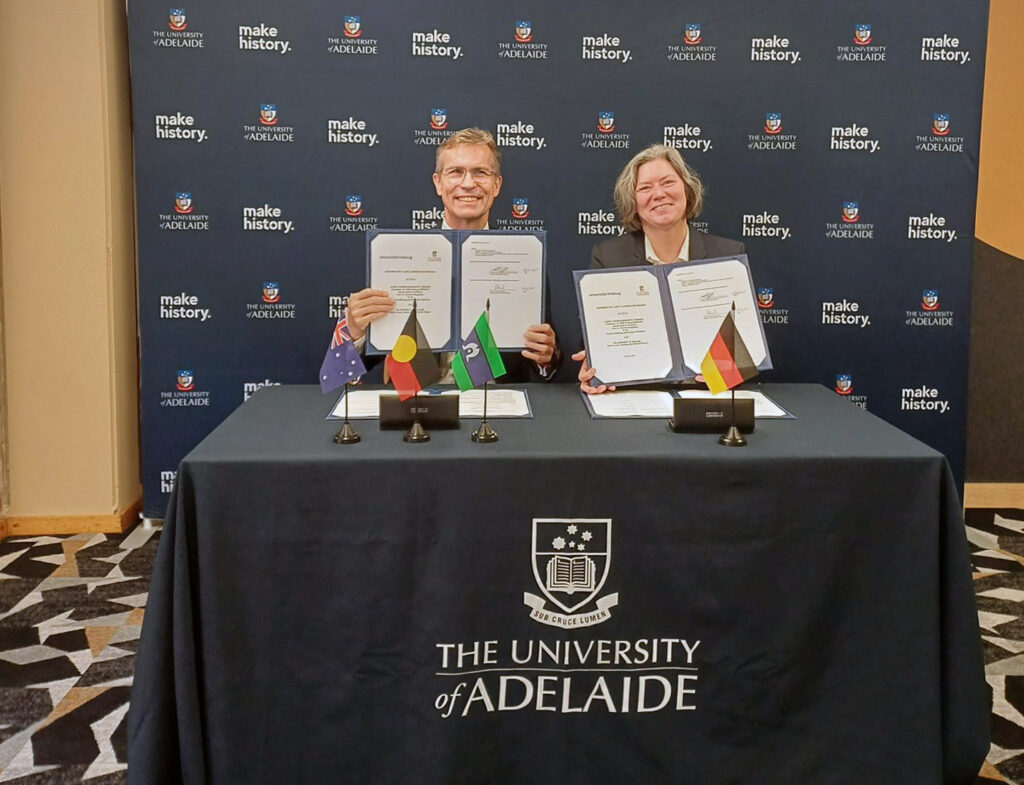
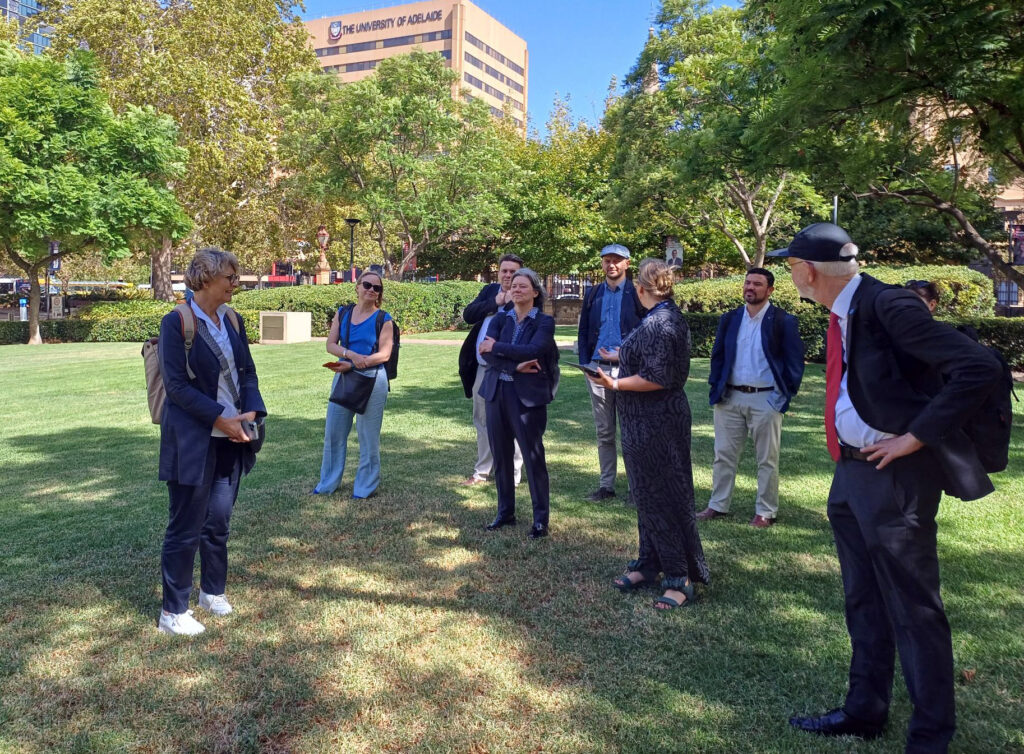
‘Both visits emphasize the importance of international exchange – whether in research, in sustainability issues, or in the capacity for university renewal. Only together can we confront global challenges and produce the necessary scholarly contributions to do so’, Krieglstein says in summary of the visits.